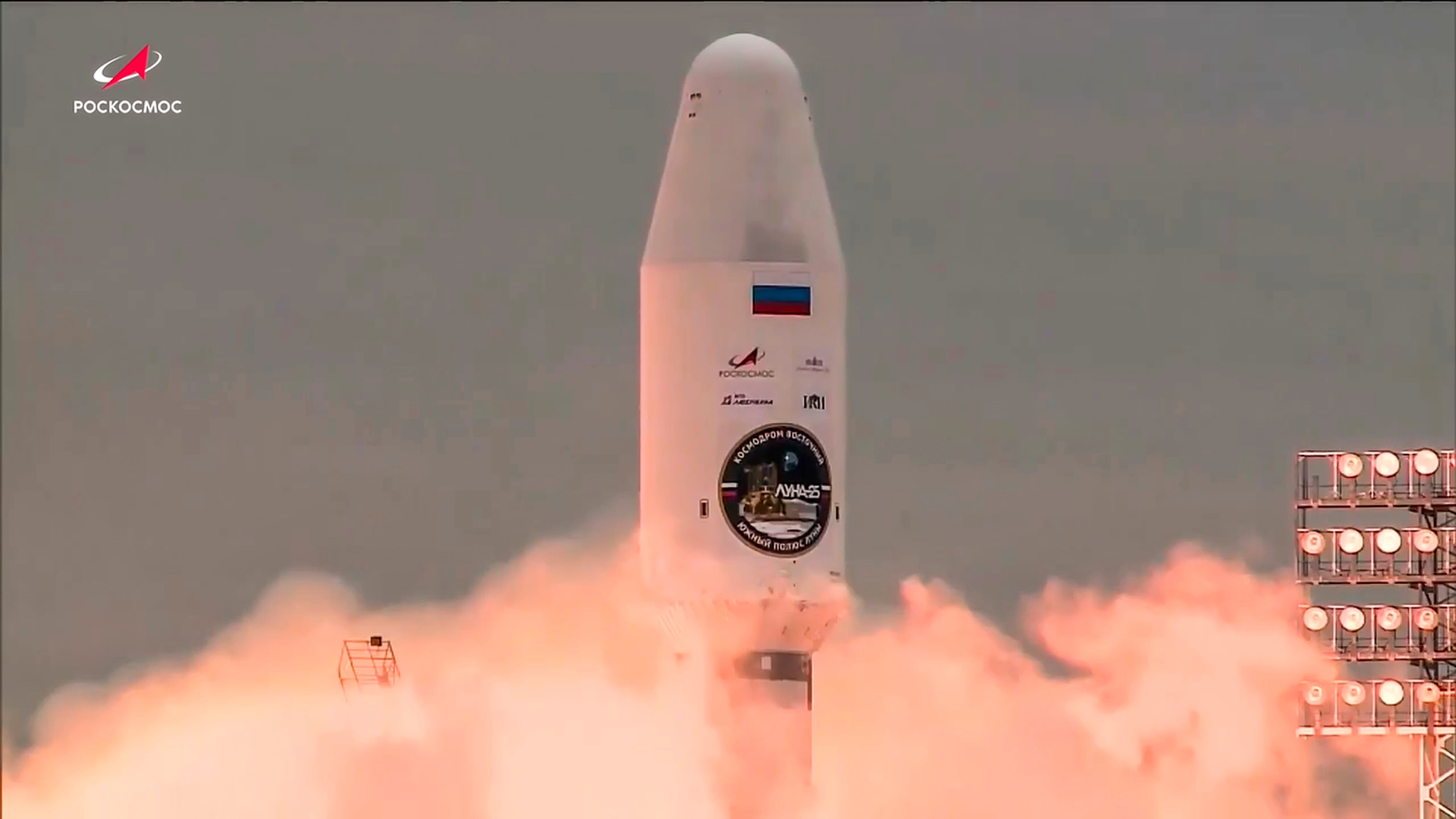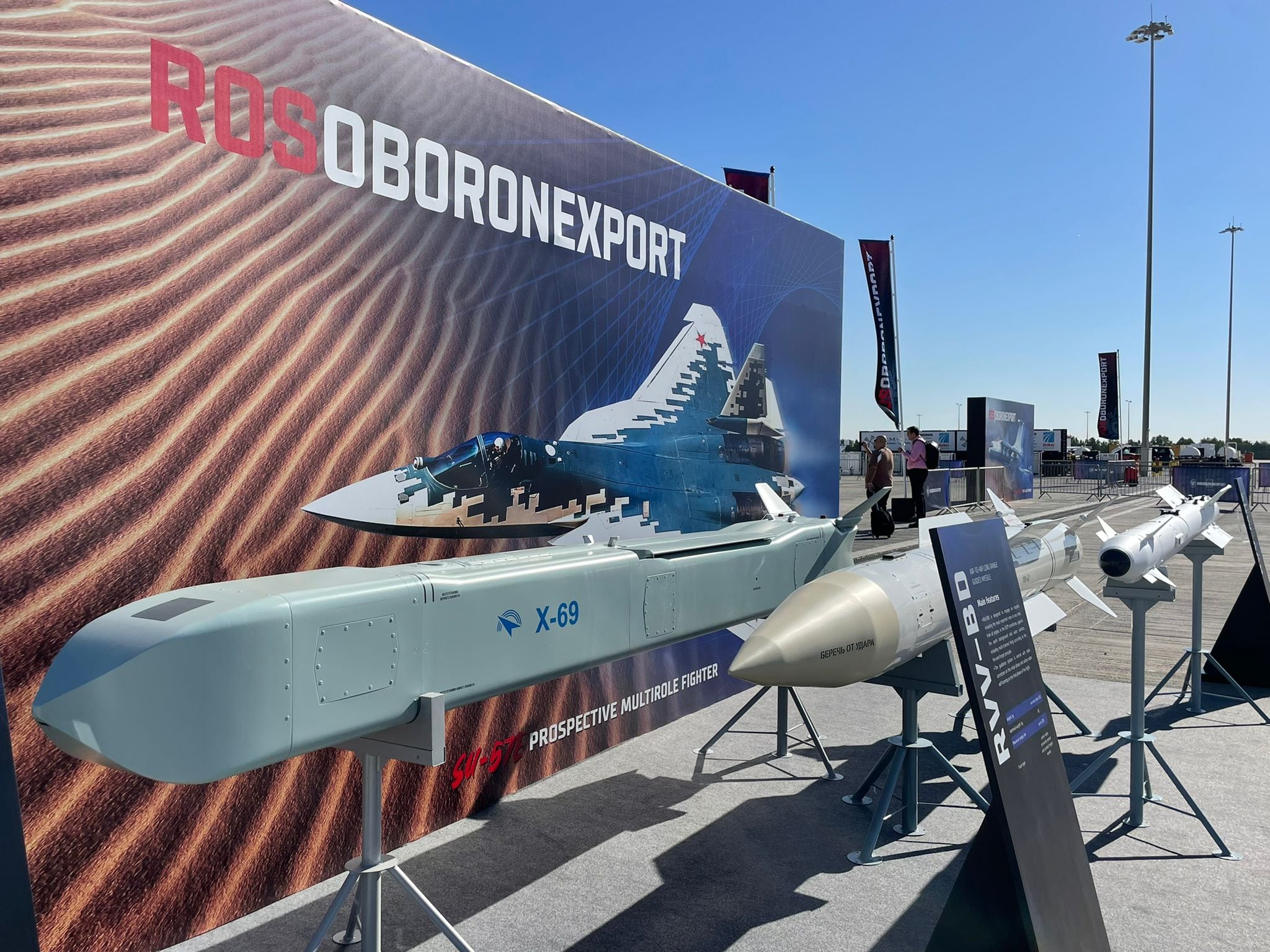DUBAI, United Arab Emirates — Tucked away outside, at the very end of the Dubai Airshow’s static display of aircraft, the Russian pavilion of suppliers makers spanned a large portion of the floor plan here.
This setting was markedly different from Moscow’s displays at recent defense fairs, where the regime’s state-owned companies came practically empty-handed and kept a relatively low profile.
RELATED

Banking on the event to market its full range of weapons, including those used in the brutal invasion of Ukraine, Russia’s outdoor setup placed helicopters and air-to-air guided missiles at center stage.
One prominent presence was the KA-52E combat helicopter, of which at least 58 units have reportedly been destroyed or damaged by Ukrainians, according to the Dutch open-source intelligence website Oryx. As part of the Russian helicopter stand, the X-69 precision strike cruise missile, designed to be employed by the Su-57 fifth-generation fighter, was shown for the first time internationally, according to the manufacturer.
A total of five Russian agencies exhibited here, including Almaz-Antey with mockups of its Viking surface-to-air missiles, Rostec with the small-scale Pantsir-S1M self-propelled, anti-aircraft missile system, Roscosmos marketing the Federal Space Program Khrunichev Center, and Rosoboronexport.
Where’s Rosoboronexport’s Argument-2?
Rosoboronexport had planned to unveil its own spin on an anti-drone gun at the airshow. Dubbed the Argument-2, the company markets the weapon as capable of destroying the wildly effective first-person-view (FPV) drones used by Ukrainian forces on the front lines. The drones are named after their modus operandi of a simple, forward-looking video feed that allow operators to fly explosive payloads near targets for detonation.
But as of Tuesday, the new system was nowhere to be seen at the Rosoboronexport stand. Asked about the absence, a company representative at the show declined to comment.
Experts have placed the number of FPV-type drones flying in Ukraine “in the many thousands per month,” Sam Bendett, research analyst at the U.S.-based Center for Naval Analyses, told Defense News.
Ukrainian forces have reportedly used the weapons in the heavy fighting around Avdiivka, a battle that has inflicted the heaviest casualties on Russian invaders in 2023, according to the U.K. Ministry of Defense.
“I think the value for Russia publicizing here is to promote and demonstrate sustainability and self-sufficiency, that it can produce technology like this on its own as the war drags on, whether that capability is accurate or not,” Matt McCrann, chief executive of DroneShield, an Australia-based competitor in the counter-drone market, said.
Throughout the Ukraine war, the United Arab Emirates has walked a fine line by choosing to remain largely neutral, maintaining close ties to Russia while also providing humanitarian aid to Kyiv.
Last March, Emirati presidential adviser Anwar Gargash said in a statement on social media that the Gulf country “believes that taking sides would only lead to more violence” and that the government prioritizes encouraging “all parties to resort to diplomatic action.”
Elisabeth Gosselin-Malo is a Europe correspondent for Defense News. She covers a wide range of topics related to military procurement and international security, and specializes in reporting on the aviation sector. She is based in Milan, Italy.







